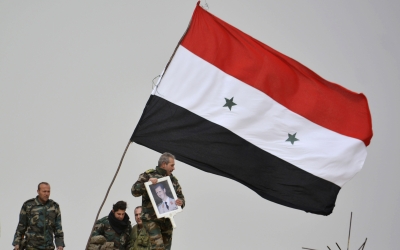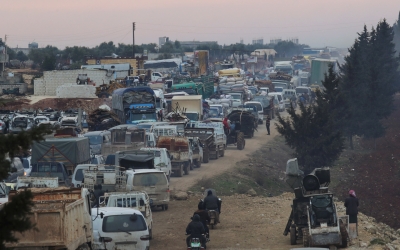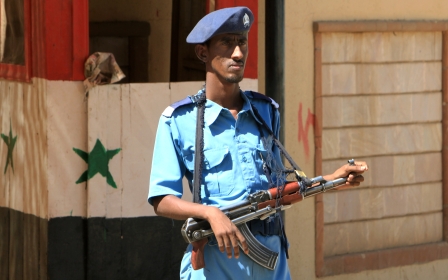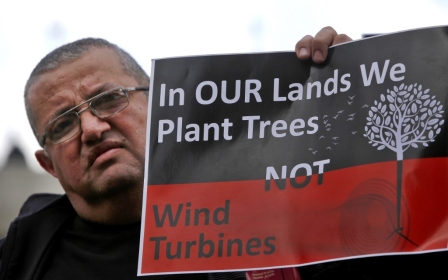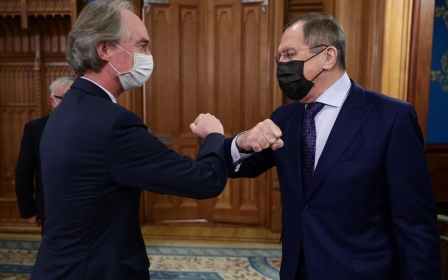Syria's government failed to rebuild medical facilities after retaking Daraa: Report
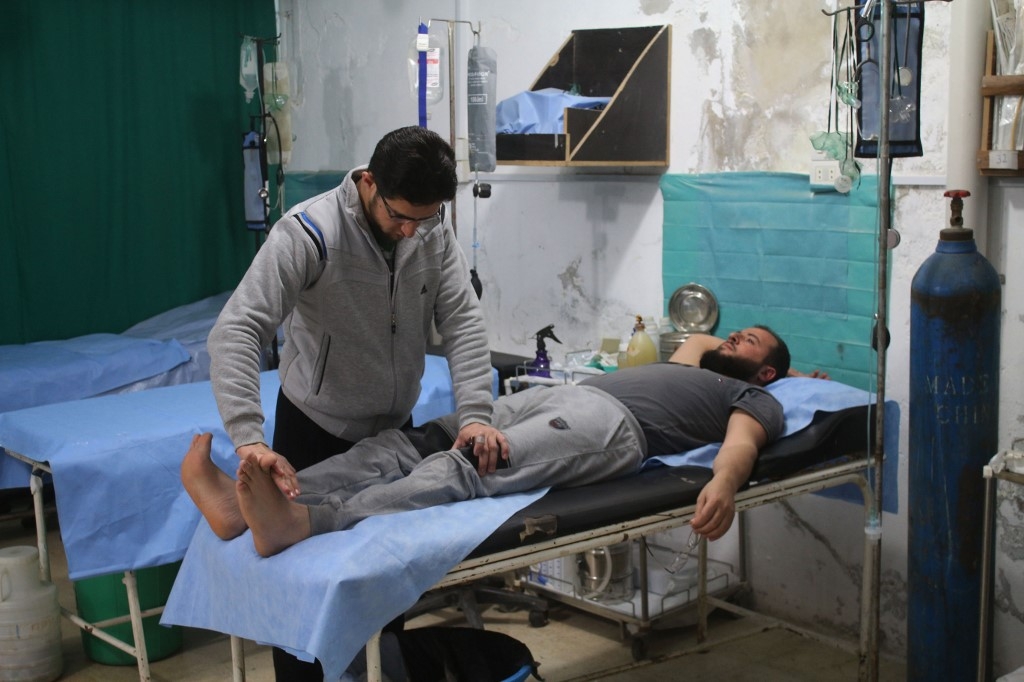
The Syrian government has obstructed humanitarian aid and deliberately neglected the medical care system in southern Syria, causing a health crisis, a global human rights group has revealed.
The government has exacerbated medical and health conditions in Daraa province and disrupted humanitarian access for more than half a million civilians, Physicians for Human Rights (PHR), a US-based human rights organisation, said in a report released on Tuesday.
'There is a significant shortage of equipment and medicines, most of the doctors have been displaced, and the others have been dismissed on the pretext that they worked with the opposition. Reconciliation is a trick'
- Daraa-based medical source
According to PHR, the government of Bashar al-Assad has violated the settlement and reconciliation agreements, failed to provide an alternative to non-governmental organisations that worked in the province during the opposition's control from 2012 to 2018, and left their workers vulnerable to retaliation.
The violations included extensive restrictions on the right to obtain information, including the arrest of medical personnel by security forces if they disclosed information different from that published by state media.
These conditions have doubly affected the medical sector - which was originally exhausted by previous government military operations - and its ability to cope with the Covid-19 pandemic, PHR said in a 43-page report titled "Obstruction and Denial: Health System Disparities and Covid-19 in Daraa, Syria".
New MEE newsletter: Jerusalem Dispatch
Sign up to get the latest insights and analysis on Israel-Palestine, alongside Turkey Unpacked and other MEE newsletters
Continued neglect
Only 38 percent of beds in hospitals are available and most civilians are unable to move out of Daraa for fear of arrest, the report said, noting that civilians are forced to pay bribes instead of waiting nine days for the results of a Covid 19 test.
The report, based on 19 interviews, concluded that the government severely violated the right to health of Daraa residents through discrimination, and explained the difficulty of accessing local information sources due to security restrictions imposed by the authorities.
MEE sources in Daraa province have confirmed poor medical services since 2018, when Russian-backed government forces took control of the province and expelled the rebels to the north of the country.
“There is a significant shortage of equipment and medicines, most of the doctors have been displaced, and the others have been dismissed on the pretext that they worked with the opposition. Reconciliation is a trick,” a Daraa-based medical source told MEE.
“Medical conditions during opposition control were at an advanced stage, NGOs established medical points and provided advanced medical equipment.
“NGO's hospital services included providing free medicines for chronic diseases, and performing many expensive surgeries for civilians for free,” he added.
The Syrian government and its Russian allies launched a military offensive against then opposition-held Daraa in June 2018, leading to the displacement of more than 270,000 civilians and large-scale destruction of health facilities.
After the military campaign, the Assad government and Russian forces proposed "reconciliation agreements" aimed at a return to life under the government's control, including full access to healthcare facilities.
According to the report, after the recapture of Daraa, "the pattern of violence has shifted to include reprisals, willful neglect, denial of access for humanitarian services, suppression of information, and arbitrary withholding of aid".
The Assad government has done little to rebuild areas formerly held by the opposition or to replace the health services that were provided by the humanitarian organisations that were forced to withdraw following the takeover of the area by government forces, the report added.
Empty promises
Since August 2018, the government considered all NGO hospitals illegal, closed them, arrested some of their workers, and limited their activities to the Red Crescent Organisation, which operates under the supervision of the intelligence services, according to PHR.
“Intelligence supervises the activities of the Red Cross and Red Crescent Organisation, and directs medical aid according to loyalty to the government,” a medical source, who declined to give his name for security reasons, told MEE.
Last week, the intelligence services released a group of young men who were arrested despite having obtained a card proving their compliance with the reconciliation and settlement agreement since 2018.
This came after the intelligence services began a new settlement process in Daraa, which includes all those who are still wanted, despite their previous settlement processes.
“We hope that relevant actors include in any future [settlement] agreements explicit protections for health and humanitarian workers,” Justine McGowan, research consultant and co-author of the PHR's report, told MEE.
"The agreements should also stipulate the government's obligation to rebuild the health system including physical infrastructure, and allow for expanded humanitarian assistance,” she added.
Systematic deprivation
During its military operations, government forces deliberately targeted hospitals, depriving civilians of treatment to pressure the opposition, which eventually surrendered its weapons under the Russian-sponsored reconciliation agreement.
The report said that governmental hospitals used to hand over protesters injured as a result of security forces' attacks at the beginning of the Syrian revolution in 2011, and in many cases, the wounded were killed in hospitals or in prisons during the investigation.
'There are indications that all the former opposition strongholds that the government has regained control of are subject to medical negligence'
- Justine McGowan, Physicians for Human Rights
This turned some civilians into activists who established secret medical points, which later developed into hospitals as the influence of opposition factions expanded, although this has exposed medical personnel to widespread security risks to this day, according to PHR.
"There are indications that all the former opposition strongholds that the government has regained control of are subject to medical negligence," McGowan told MME.
However, she noted the particular situation in Daraa, given its location on the Syrian-Jordanian border, which poses challenges in the face of Coved 19.
Community solutions
Residents face complex situations as protests or civil disobedience put pressure on the government when it arrests a civilian for allegations of past activity with the opposition.
Recently, residents of the city of Bosra al-Harir, north of Daraa, held a meeting calling for a campaign of medical donations from expatriates and local residents, with calls to surrounding villages quickly growing.
The campaign provided oxygen cylinders and sterilisation supplies for schools and public facilities, and established a private quarantine centre, instead of the notorious government quarantine centres from which patients are discharged within days after paying bribes.
In addition, the campaign provided an oxygen-generating device that cost more than 300 million Syrian pounds ($11,000), and equipped the local hospital with dialysis machines, the medical source explained.
“We have lodged complaints with the Russian forces in vain. It is the only hospital serving civilians in the north of the province, yet the government continues to withhold medical services from us,” the source said.
Middle East Eye delivers independent and unrivalled coverage and analysis of the Middle East, North Africa and beyond. To learn more about republishing this content and the associated fees, please fill out this form. More about MEE can be found here.


